The Future of SEO: Will AI Replace Traditional SEO Methods?
Introduction:
Artificial Intelligence (AI) is revolutionizing industries worldwide, and SEO is no exception. The efficiency and speed AI brings to SEO tasks, such as keyword research, content optimization, and backlink analysis, is undeniable. With AI’s transformative capabilities, one may wonder if traditional SEO methods will become obsolete. The answer is: not quite. While AI can automate and streamline many processes, human expertise and creativity remain irreplaceable. The future of SEO isn’t about choosing between AI and human involvement—it’s about how these two elements can complement each other to create more effective and impactful strategies.
Automation of SEO Tasks:
The automation potential of AI has drastically reshaped SEO workflows. Tasks that once took hours or even days—like identifying high-value keywords, analyzing competitor websites, or tracking backlinks—can now be done in minutes using AI tools. Tools such as Jasper, ChatGPT, and SEMrush can crawl websites, analyze performance data, and suggest optimizations with a few clicks. This automation saves SEO professionals from tedious, repetitive tasks, allowing them to focus their energy on higher-level strategy, audience engagement, and campaign creativity.
For example, keyword research used to require manually sifting through volumes of search data. AI tools now do this instantly by analyzing trends, identifying gaps, and providing relevant keyword suggestions. Similarly, link-building strategies can be enhanced with AI tools that automate outreach and track the most effective backlinks. However, while AI speeds up processes, it doesn’t offer the human understanding needed to align these elements with a business’s unique goals and brand voice.
AI’s Impact on Efficiency:
AI’s ability to process vast amounts of data and deliver actionable insights has greatly improved the efficiency of SEO decision-making. SEO professionals can now access real-time analytics, predictive insights, and automated reports, allowing them to respond to changes in search engine algorithms or user behavior more swiftly than ever before. AI’s data-driven nature makes it a powerful tool for identifying trends, optimizing campaigns, and improving overall website performance.
The efficiency boost from AI is particularly valuable in an SEO environment where timing is critical. Search engine algorithms are constantly evolving, and trends emerge quickly. AI tools enable marketers to adapt in real-time, ensuring that their SEO strategies remain relevant. Despite AI’s speed and precision, however, it lacks the ability to fully interpret data in context. AI can tell you what’s happening, but it can’t tell you why it matters to your specific audience.
Why Human Strategy Still Matters:
While AI is capable of handling repetitive, data-heavy tasks, it falls short when it comes to the subtleties of human emotion, culture, and audience engagement. SEO is not just about optimizing content for search engines; it’s also about creating meaningful, engaging experiences for users. This is where human strategy comes into play. AI might identify the most effective keywords, but it’s the human SEO professionals who understand the nuances of language, tone, and cultural references that will resonate with specific target audiences.
For instance, AI might suggest high-volume keywords based on search trends, but human oversight is needed to ensure those keywords align with brand values, customer intent, and industry context. AI may suggest content improvements, but humans are essential for crafting narratives that connect with people on an emotional level. Only humans can understand the subtleties of context, tone, and the ever-changing dynamics of human behavior, which are critical for an SEO strategy’s success.
Additionally, SEO is not just about individual content pieces; it’s about the overarching strategy that connects multiple elements—content, technical SEO, user experience, and more. Humans are needed to set these long-term goals, ensure alignment with business objectives, and adapt strategies as needed.
AI as a Complement, Not a Replacement:
The future of SEO is not about replacing traditional methods with AI—it’s about integrating AI with human expertise to create more efficient, data-driven strategies that also resonate with real people. AI is a tool that enhances decision-making, boosts efficiency, and automates routine tasks. Humans, on the other hand, bring creativity, critical thinking, and emotional intelligence to the table. Together, AI and humans form a powerful combination that can tackle both the technical and strategic elements of SEO.
AI can provide the data, but humans must decide how to use that data effectively. AI can generate content ideas, but humans must add the cultural, emotional, and creative touches that make the content truly engaging. In technical SEO, AI can analyze and optimize website performance, but humans are needed to oversee the implementation and ensure it aligns with broader business goals.
Conclusion:
As AI continues to evolve, its role in SEO will undoubtedly expand, but it will never completely replace the need for human insight, creativity, and strategy. The future of SEO is a partnership between AI and people, leveraging the best of both worlds to create SEO strategies that are both efficient and effective. AI will automate processes, analyze data, and predict trends, but it’s humans who will interpret this information, make strategic decisions, and ensure that SEO efforts resonate with the intended audience. The ultimate SEO strategy will blend AI’s speed and precision with human creativity and intuition, creating a future where both technology and human insight drive success.
AI Evolution and Human Dependency:
As AI technologies continue to advance, their role in SEO will become even more prominent. Yet, the success of AI in SEO will always depend on human collaboration. Humans will continue to lead in crafting strategies, understanding market dynamics, and bringing empathy into content creation—elements that AI alone cannot replicate. AI will evolve to become an even more powerful tool, but it will never fully replace the need for human insight, creativity, and decision-making. The true power of AI lies in how it enhances human capabilities, not in how it replaces them. The future of SEO will be shaped by those who learn to combine AI’s technical prowess with the irreplaceable human touch.

